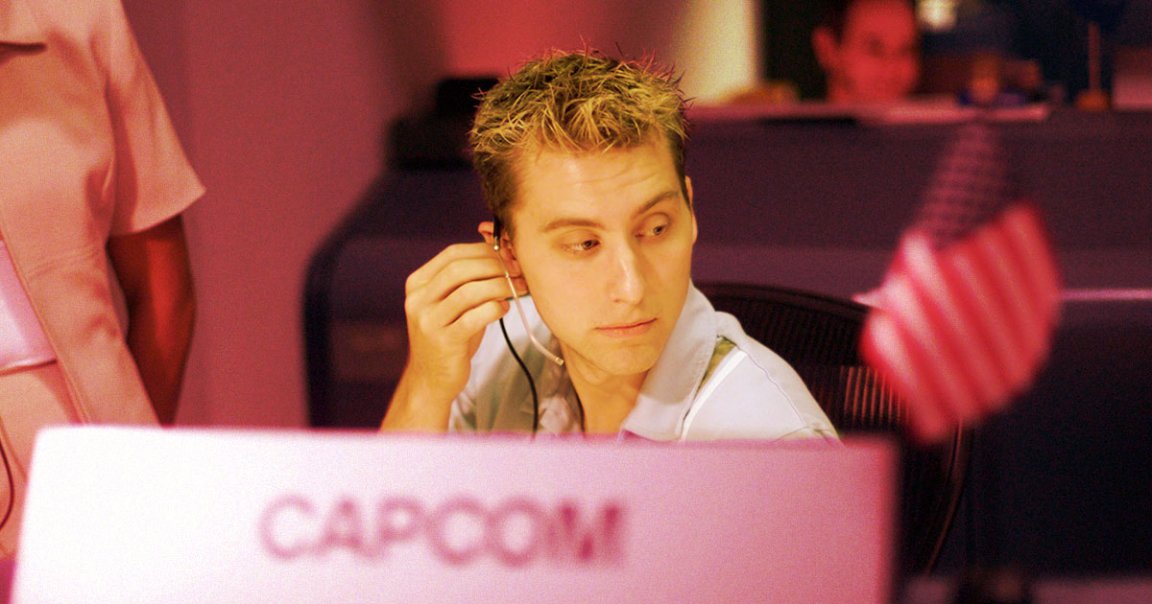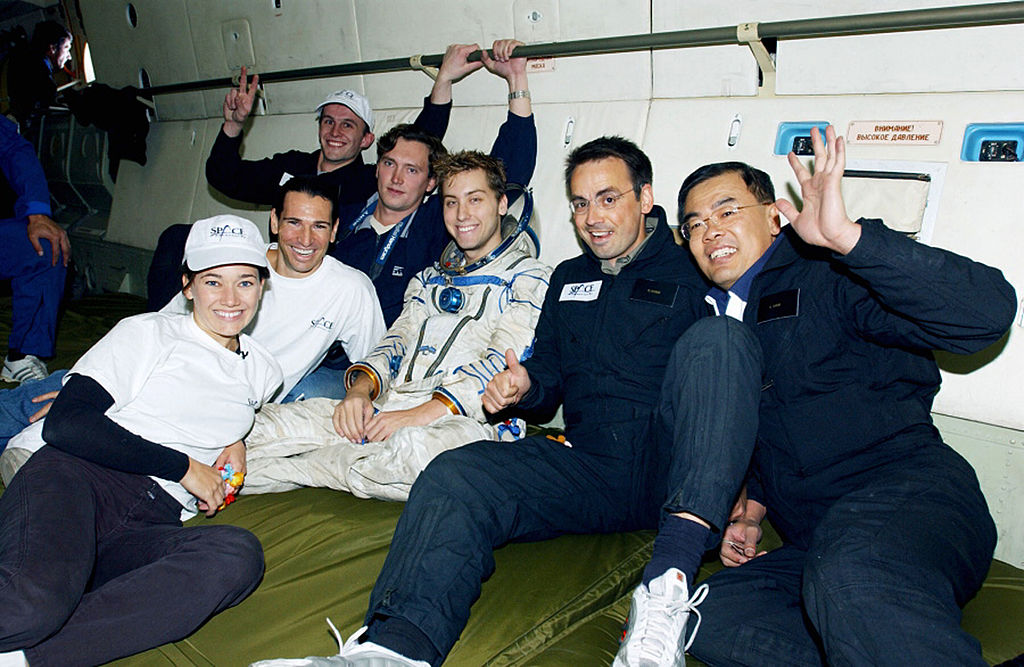
Former NSYNC member Lance Bass grew up dreaming of becoming an astronaut and was planning on becoming an engineer — until a call from Justin Timberlake launched him on a very different trajectory, that is.
But for a six-month hiatus from the legendary boy band in 2002 — which would later turn into the disbandment of the group — Bass dived straight back into that childhood dream.
He spent that summer in Star City, Russia, training to become a cosmonaut — and possibly the youngest astronaut in the world, at the age of just 23.
“When I started training, NASA nor [Russia’s counterpart] Roscosmos believed in me at all,” Bass told Futurism in an interview. “All they saw was, ‘oh, this boy band kid… they all thought I was an alcoholic and a drug addict. Like they just thought ‘Rockstar, Rockstar.'”
“But they didn’t think I would last a week,” he added.
Bass went through a litany of tests, with training pushing him to his physical limits. The former popstar even learned some Russian — a skill that faded away over 20 years, he admits — to earn his ticket to space.
“Space training is quite the ride, from the centrifuge to parabolic flights to learning astrophysics and a different language,” he said.

During his time in Star City, Bass was immersed in the lore of the Soviet Union’s space program, hearing the many tales of icons like Yuri Gagarin, the cosmonaut who became the first person to orbit the Earth in 1961.
One particular story caught Bass’ attention, though. In 1991, cosmonaut Sergei Krikalev spent 311 consecutive days on board Russia’s Mir space station — as the Soviet Union dissolved hundreds of miles below him.
The cosmonaut had to make an impossible choice: return to his wife and nine-month-old daughter early and abandon the station, something that would have led to its demise, or soldier on alone.
All told, Krikalev spent twice as long as originally planned on board the Russian space station. Upon his return, having circled the Earth about 5,000 times, he was celebrated as “the last Soviet citizen” as he touched down to a fundamentally different geopolitical reality.
He later went on to become a member of the very first expedition to the newly constructed International Space Station in 2000, setting the stage for decades of cooperation and scientific research in Earth’s orbit.
Now, Bass is retelling Krikalev’s story in an eight-part podcast called “The Last Soviet,” drawing on his own experience training as a cosmonaut to bring the harrowing tale to life.
Krikalev’s story “goes beyond politics,” Bass told Futurism. “And as we know, as we learned in this story, space is all about politics — but not to these cosmonauts and astronauts. They’re there for the right reasons; for helping Earth as a whole.”
In other words, Krikalev’s experience couldn’t be more relevant.
“It’s such an incredible story, obviously, one we didn’t as Americans read in our history books, but it’s interesting how things are still kind of following the same parallels even today,” Bass told Futurism.
Though relations between the United States and Russia have deteriorated, the ISS remains a symbol of international cooperation that has survived political crises over the decades.
Most recently, Russia’s unprovoked invasion of Ukraine has put a renewed strain on the relationship, even leading the international space community to sever many of its ties with Roscosmos.
The parallels to Krikalev’s story are tangible. Krikalev was trapped inside a space station while the USSR dissolved below him; Russian cosmonauts could literally see the invasion of Ukraine from space.
“At the beginning of the war, the whole country went dark at night,” European Space Agency (ESA) astronaut Matthias Maurer, who was stationed on board the ISS at the time, told German broadcaster ARD in May.
The invasion “was clearly visible to the naked eye from space,” he recalled, adding that he could spot “huge black columns of smoke over cities like Mariupol,” a port city in south Ukraine that was leveled by Russian forces.
The war in Ukraine presages darker things for space: espionage and recriminations on the ISS, the militarization of orbit, and lunar land grabs.
When Futurism asked Bass about relations between NASA and Roscosmos, his PR representative cut in.
“I think we’ll just skip that question,” she said, cutting Bass short.
The invasion in Ukraine also had a direct impact on Bass’ efforts to retell Krikalev’s story. The conflict forced the producers of “The Last Soviet” to cancel a series of interviews they had already scheduled with Krikalev, a development that came as a “huge disappointment,” as Bass told Ars Technica.
Still, the producers were able to draw from historians, space experts, and those close to the cosmonauts who spent time on Russia’s Mir space station to bring Krikalev’s story to life.
Only three episodes in, “The Last Soviet” is already a compelling saga, illustrated with gorgeous sound design and fascinating historical recordings mixed in throughout.
As for what Bass himself would’ve done in Krikalev’s position, the former musician had a straightforward answer, albeit with some trepidation.
“As a patriot myself, I would have tried to stay for sure,” he told Futurism, “but 313 days, you don’t know what your mind is going to do. You know, the space madness starts to kick in.”
“I would have tried to last as long as I could,” he added,” and hopefully would have made it. But I mean, that takes a lot to be able to do what he did.”
In short, the podcast couldn’t be more relevant in the year 2023. The USSR may have fallen over 30 years ago, but the unprecedented international cooperation in space it eventually led to has left a lasting mark on our efforts to explore space.
It’s a hard-won victory that should never be taken for granted, especially in light of geopolitical turmoil.
“I think people are gonna listen to this podcast and really find a hero in Krikalev and really find a lot of common ground,” Bass said.
Full disclosure: A member of Futurism’s staff previously consulted for Kaleidoscope, which produced The Last Soviet. Beyond offering to put us in touch with Kaleidoscope, he otherwise had no editorial involvement in this interview.
More on Russia: Elon Musk Warns “Civilization Is Over” If Ukraine Doesn’t Give In to Russia